Women have played a major role in Iranian politics before, during and after the 1979 revolution. They were given the vote and right to run for office in 1963 during the monarchy; in 1978, they held 22 seats in parliament. During the four decades after the revolution, dozens of women from across the political spectrum—hardline, conservative, centrist and reformist —were elected to parliament. They served as cabinet officials and vice presidents. (Iran has multiple vice presidents; it had 12 under President Hassan Rouhani).
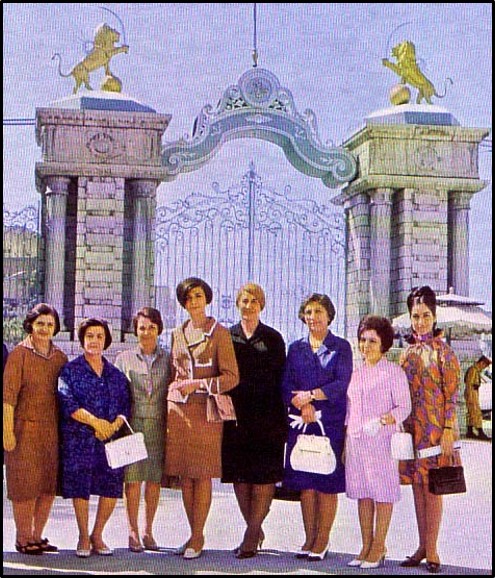
In the executive branch, the best known female politician is Masoumeh Ebtekar, a former spokesman for the students who seized the U.S. Embassy in 1979; she was appointed vice president of the environment by President Mohammad Khatami, a reformist, in 1997, and vice president of women and family affairs by President Hassan Rouhani in 2017. Marzieh Dastjerdi, a conservative and the first female cabinet minister, was appointed by President Mahmoud Ahmadinejad, a hardliner, in 2009.
Related Material: Phases of the Women’s Movement
- Part 1: Phases of the Women's Movement
- Part 3: Iranian Laws on Women
- Part 4: Khomeini and Khamenei on Women
- Part 5: Statistics on Women in Iran
Executive Branch by Presidency
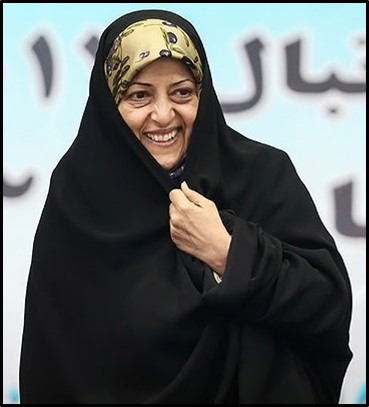
Khatami Administration
Masoumeh Ebtekar is a U.S.-educated reformist who began her political career as a young revolutionary in 1979. As an 18-year-old, she gained international notoriety as an official spokesperson and interpreter for the hostage-takers at the U.S. Embassy between 1979 and 1981. Ebtekar later became the editor-in-chief of Kayhan International, an English-language newspaper. She worked under Khatami, who was then the head of the Kayhan publishing house and later became president of Iran. Khatami appointed her vice president for the environment in 1997, the first Iranian woman to ever hold the vice presidency. In 2013, Rouhani reappointed her to the same position before designating her vice president for women and family affairs in 2017.
Ahmadinejad Administration
Marzieh Dastjerdi is a conservative who began her political career in the Majles, where she served from 1992 to 2000. While in parliament, she chaired the committee on Women, Family and Youth. She was appointed Health and Medical Education Minister under President Mahmoud Ahmadinejad from 2009 to 2012, the first female cabinet official in Iran since the 1979 revolution. In 2012, Dastjerdi was fired by Ahmadinejad after she criticized the government for medicine shortfalls. She was a rumored presidential candidate in 2017 and in 2021.
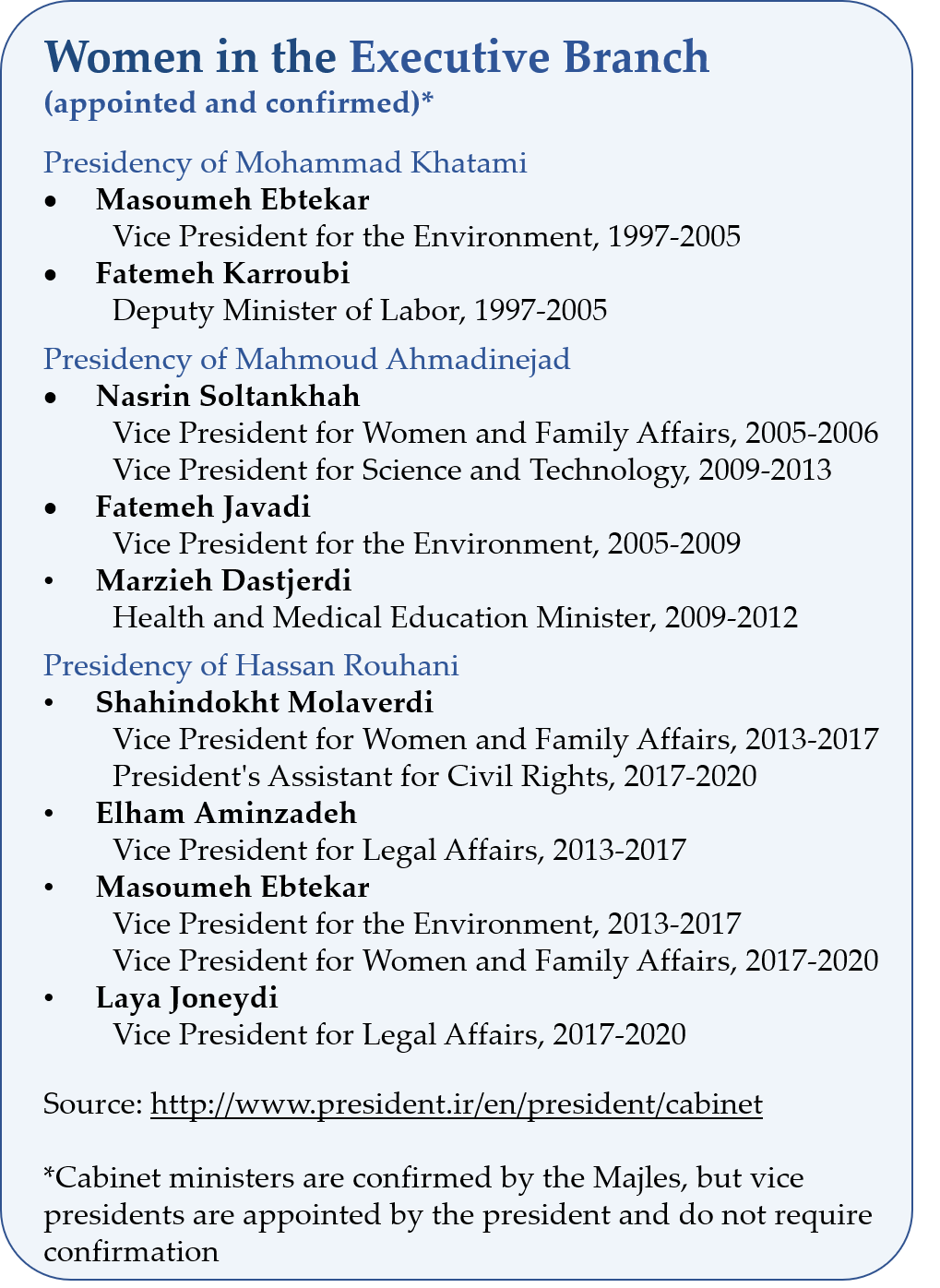 Rouhani Administration
Rouhani Administration
Shahindokht Molaverdi is a reformist who served as vice president for women and family affairs from 2013 to 2017 under President Rouhani. She was later his special assistant for citizenship rights from 2017 to 2018. Molaverdi resigned from the executive branch after the Majles passed a law banning the employment of retirees in government posts. Molaverdi attempted to run for the Majles in the 2020 parliamentary elections. But the Guardian Council disqualified her from running. In May 2020, hardliners criticized Molaverdi after she posted on social media a U.N. graphic that depicted a homosexual couple. In July, the judiciary charged her with spreading "propaganda against the regime" and "providing classified information and documents" to foreign actors, charges that were leaked to Iranian newspapers. In December, Molaverdi was sentenced to 30 months in jail on both charges. She pledged to appeal the verdict.
Laya Joneydi is a reformist who was previously a Harvard-educated lawyer and associate professor at University of Tehran. She was appointed vice president for legal affairs by President Rouhani in August 2017. Jonyedi filed a lawsuit against the United States at the International Court of Justice after President Trump withdrew from the 2015 nuclear deal in 2018. She helped argue the case at The Hague. Iran won the case. The court ordered Washington to ensure sanctions did not affect Iran’s ability to import humanitarian aid, food or medicine.
Members of Parliament (in Chronological Order)
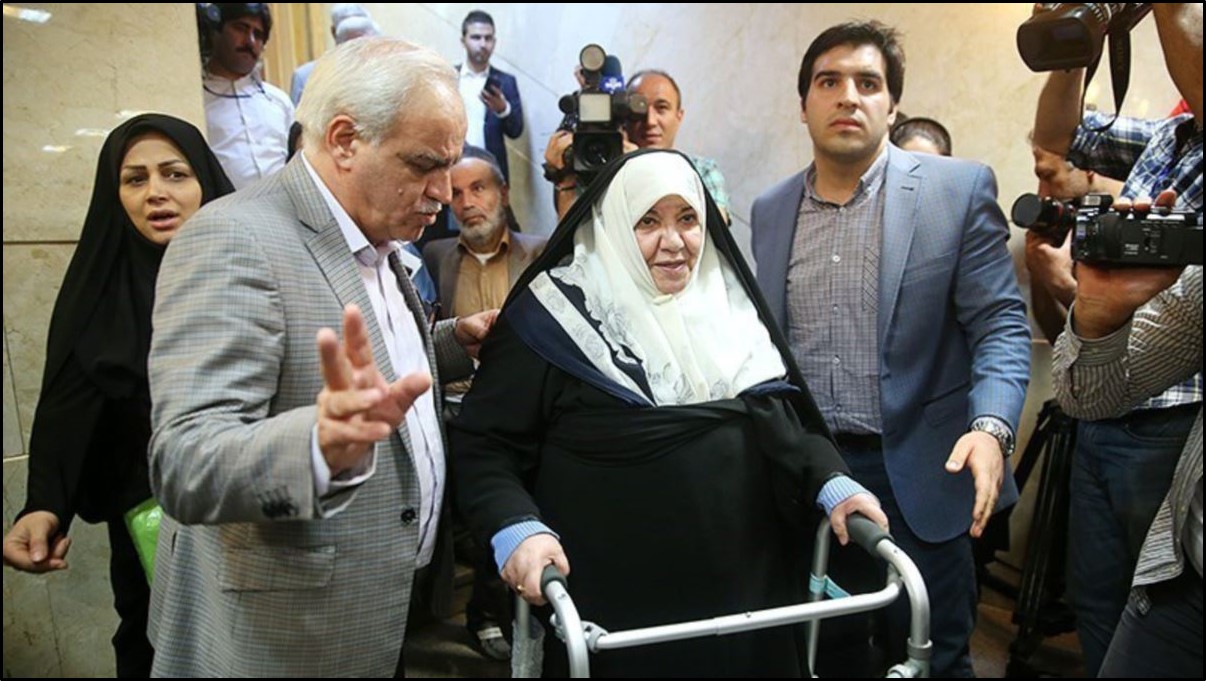
Azam Taleghani was a reformist who represented Tehran in the Majles from 1980 to 1984. She was one of the first four women elected to the legislature. While in office, she founded the Society of Muslim Women and published a weekly journal on women’s rights. She registered as a presidential candidate five times (in 1997, 2001, 2005, 2009 and 2017) but was repeatedly disqualified by the Guardian Council. In 2009, she criticized the government’s crackdown on the opposition Green Movement in a letter to Supreme Leader Ayatollah Ali Khamenei. In November 2019, she died at age 76 after being admitted to Pars Hospital with a brain disorder.
Faezeh Hashemi is a reformist who represented Tehran in the Majles from 1996 to 2000. She is the eldest daughter of former President Akbar Hashemi Rafsanjani. While in office, she founded and was editor-in-chief of the first woman’s daily newspaper, Zan, in 1998. Authorities ordered the paper’s closure in 1999. Hashemi supported reformist candidate Mir-Hossein Mousavi in the 2009 elections. She was arrested after addressing an opposition rally in June 2009 and subsequently barred from leaving the country. Hashemi was arrested three more times between 2009 and 2017. In 2012, she was sentenced to six months for “spreading propaganda against the system.” In 2017, she was sentenced to another six months on the same charge.
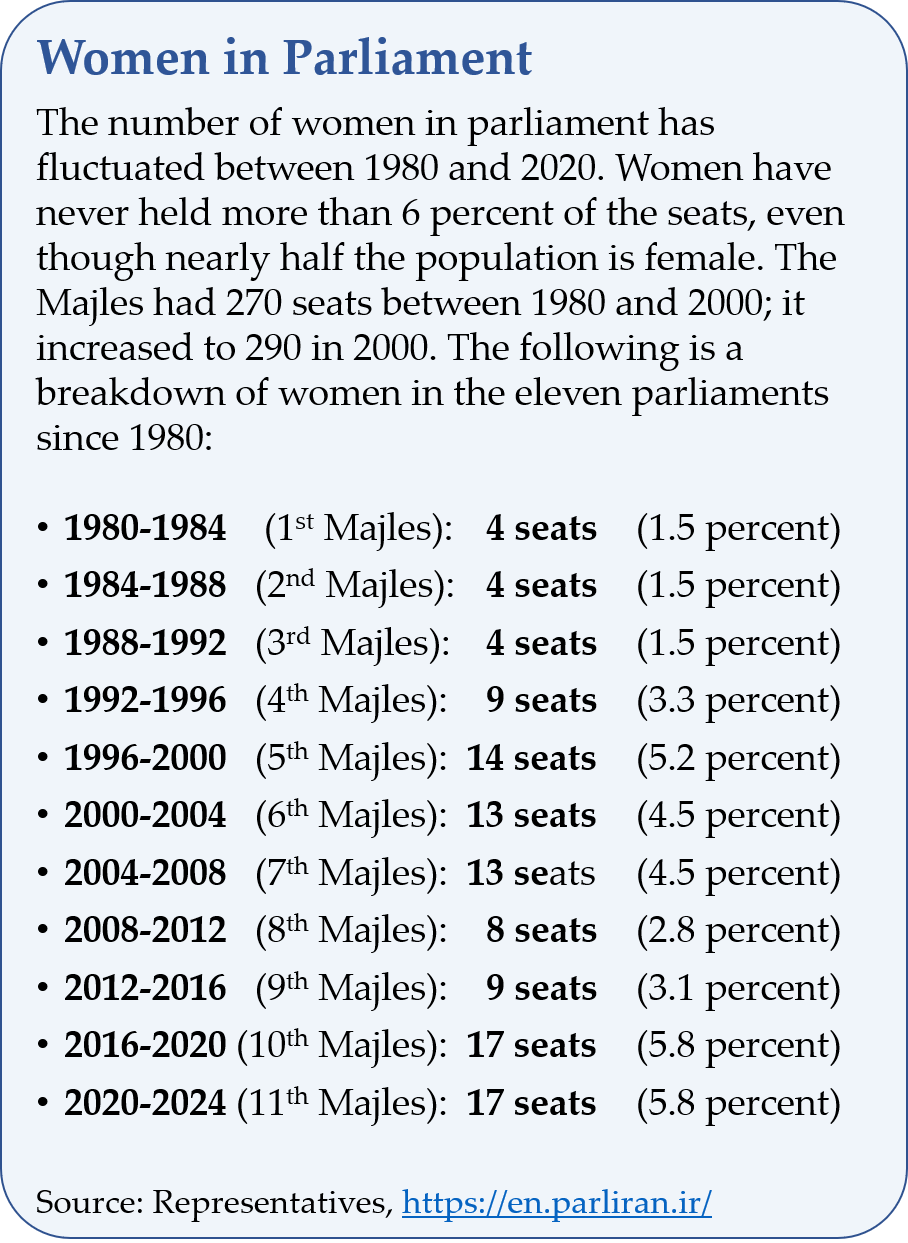 Fatemeh Karroubi is a reformist who represented Tehran in the Majles from 1996 to 2000. She also served as deputy minister of labor for social affairs under President Khatami. Fatemeh is the wife of Mehdi Karroubi, the Majles speaker from 2000 to 2004 and presidential candidate in 2005 and 2009. She openly campaigned for her husband in Tehran during his second bid for president. She and her husband were placed under house arrest in February 2011 without charge. Fatemeh was released for health reasons in April 2011. As of October 2020, she continued to advocate on behalf of her husband who remained under house arrest.
Fatemeh Karroubi is a reformist who represented Tehran in the Majles from 1996 to 2000. She also served as deputy minister of labor for social affairs under President Khatami. Fatemeh is the wife of Mehdi Karroubi, the Majles speaker from 2000 to 2004 and presidential candidate in 2005 and 2009. She openly campaigned for her husband in Tehran during his second bid for president. She and her husband were placed under house arrest in February 2011 without charge. Fatemeh was released for health reasons in April 2011. As of October 2020, she continued to advocate on behalf of her husband who remained under house arrest.
Soheila Jolodarzadeh is a reformist who represented Tehran in the Majles from 1996 to 2004, 2007 to 2008 and 2016 to 2020. While in office, she was the first women to be elected parliamentary secretary. She has publicly backed female protesters who were arrested for refusing to wear their headscarves. She was also a staunch backer of Rouhani’s candidacy. “The programs of the Rouhani administration are the same programs that reformists have been wishing for,” she wrote in July 2013.
Jamileh Kadivar is a reformist who represented Tehran in the Majles from 2000 to 2004. She was put on trial in November 2000 for attending a conference on Iranian politics in Berlin. The judiciary charged her with harming national security, but she was acquitted in January 2001. In May 2013, Kadivar argued that the Guardian Council should not disqualify female presidential candidates. “Ultimately, it is the Guardian Council’s duty to interpret the law; thus, all their efforts have so far been futile,” she wrote. Kadivar is the brother of Mohsen Kadivar, a vocal critic of the Islamic Republic’s ruling clerics.
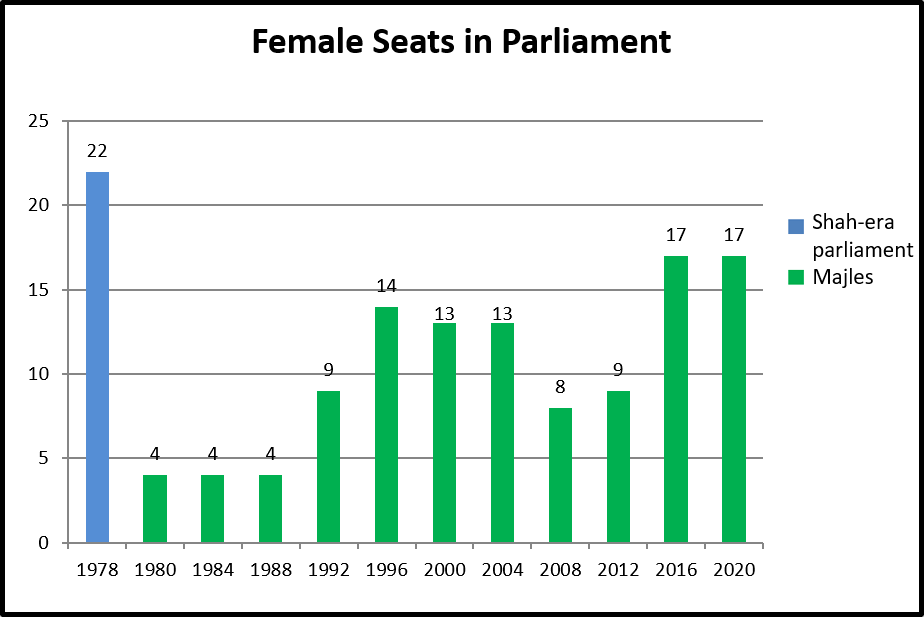 Dr. Fatemeh Haghighatjoo is a reformist who represented Tehran in the Majles from 2000 to 2004, where she was the youngest female parliamentarian. While in office, she proposed a bill to ratify the U.N. Convention on the Elimination of Discrimination Against Women (CEDAW), but the measure failed due to conservative opposition. She resigned from parliament in 2004 to protest the Guardian Council’s mass disqualification of reformist candidates in elections. In 2005, she left Iran for the United States where she heads a non-profit on nonviolent methods for promoting democracy.
Dr. Fatemeh Haghighatjoo is a reformist who represented Tehran in the Majles from 2000 to 2004, where she was the youngest female parliamentarian. While in office, she proposed a bill to ratify the U.N. Convention on the Elimination of Discrimination Against Women (CEDAW), but the measure failed due to conservative opposition. She resigned from parliament in 2004 to protest the Guardian Council’s mass disqualification of reformist candidates in elections. In 2005, she left Iran for the United States where she heads a non-profit on nonviolent methods for promoting democracy.
Fatemeh Rahbar was a conservative who represented Tehran in the Majles from 2004 to 2016. While in office, she chaired the all-female parliamentary group known as the Women’s Fraction, was appointed vice president of the Iranian National Commission for UNESCO, and served as deputy head of the Imam Khomeini Relief Foundation, a state-run charity. She was reelected to serve a fourth term in 2020 but tested positive for the novel coronavirus in March. Rahbar died before taking her oath of office.
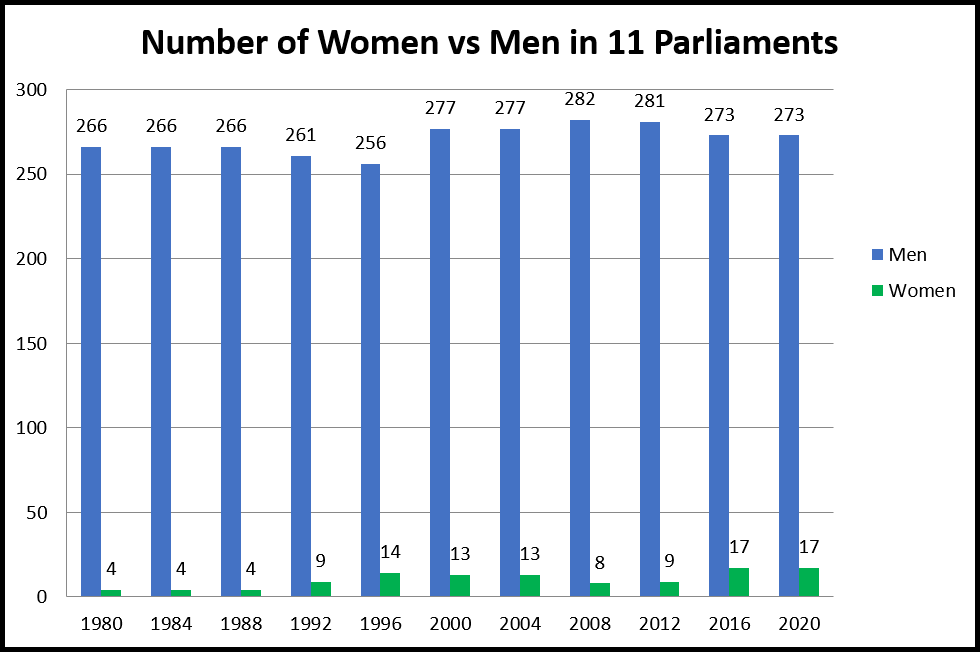 Fatemeh Alia is a hardliner who represented Tehran in the Majles from 2004 to 2016. While in office, she headed the committee for Women and Family Affairs and served on the Central Council of the Principlist Caucus, among the most conservative factions in parliament. In 2009, President Ahmadinejad nominated Alia to serve as education minister, but she failed to receive enough votes from her conservative peers. In 2014, she criticized the interim nuclear agreement between Iran and the five major world powers known as the Joint Plan of Action. “'The whole nation believes the main intention of the United States is fully halting the Iranian nuclear program,” she said.
Fatemeh Alia is a hardliner who represented Tehran in the Majles from 2004 to 2016. While in office, she headed the committee for Women and Family Affairs and served on the Central Council of the Principlist Caucus, among the most conservative factions in parliament. In 2009, President Ahmadinejad nominated Alia to serve as education minister, but she failed to receive enough votes from her conservative peers. In 2014, she criticized the interim nuclear agreement between Iran and the five major world powers known as the Joint Plan of Action. “'The whole nation believes the main intention of the United States is fully halting the Iranian nuclear program,” she said.
Non-government activists (in alphabetical order)
Shohreh Bayat was the chief arbiter at the 2020 Women's Chess World Championship where she was photographed without her hijab. She refused to apologize to the Iranian government and sought refuge in Britain. "It's against my beliefs," she said. "People should have the right to choose the way they want to dress; it should not be forced." The State Department named her an International Woman of Courage in March 2021.
Shirin Ebadi was the first Muslim woman awarded the Nobel Peace Prize in 2003. During the monarchy, she was the first female judge; she worked as a human rights lawyer after the revolution. In 2001, she established the Defenders of Human Rights Center to defend women activists, political prisoners and religious minorities. The judiciary ordered the office to close in December 2008. In June 2009, Ebadi went into exile in Britain.
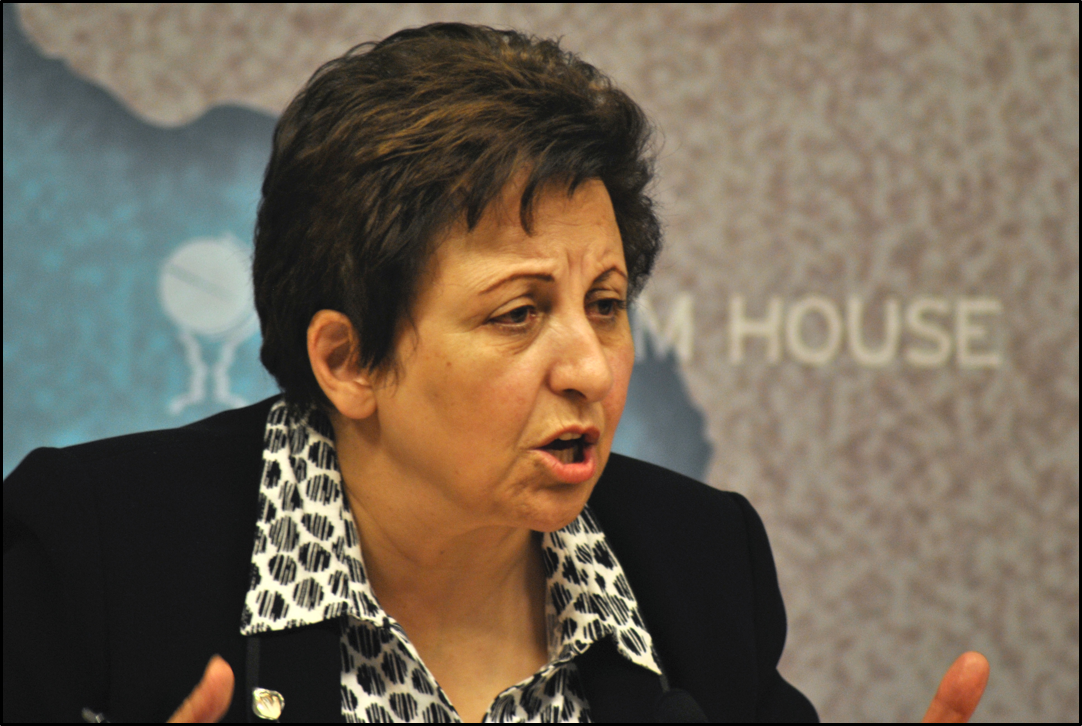
Zahra Eshraghi is a women’s rights activist and the granddaughter of Ayatollah Ruhollah Khomeini. Eshraghi has called for annulling the mandatory dress code and condemned police arrests of violators. “I am opposed to any police crackdown on the dress code because I believe that such measures will have no effect,” she told Asharq al Awsat in 2013. “As long as this law is in effect, we have to object to it.” Eshraghi was a strong supporter of President Khatami and backed reformist candidate Mir Hossein Mousavi during the 2009 presidential elections. She is married to Reza Khatami, former deputy speaker of Parliament and brother of the former president.
Atena Farghadani is a political cartoonist. She famously depicted parliamentarians voting to restrict women’s access to contraception as apes, goats and cows. In 2014, Tehran’s Revolutionary Court sentenced her to nearly 13 years in prison for “insulting members of parliament through paintings” and “spreading propaganda against the system.” Farghadani was freed in May 2016 and continued to live in Iran. “I could be more successful in developed countries, but when I witness the problems Iranians are dealing with, such as economic and cultural poverty and various limitations, I cannot leave them alone to live in another country in a better situation,” Farghadani told The Washington Post in July 2016.
Zahra Rahnavard is the spokesperson for the opposition Green Movement that formed after the disputed 2009 presidential elections. She is the wife of Mir Hossein Mousavi, the reformist presidential candidate, who lost to Ahmadinejad. Rahnavard gained notoriety as the first wife to publicly campaign for her husband. She and her husband have been under house arrest since February 2011. Previously, Rahnavard served as the first female chancellor of Al Zahra University from 1998 to 2006. During her tenure, she also served as a political adviser to President Khatami.
Hengameh Shahidi is a prominent member of the Green Movement. She served on the political committee of President Rafsanjani and advised Mehdi Karroubi, reformist candidate in the 2009 presidential election, on women’s issues. In December 2018, she was sentenced to 12 years and nine months for insulting the judiciary. “[Chief Justice Sadegh] Larijani is accusing me of fighting against the state for a simple criticism and demanding a report on his 10-year tenure,” Shahidi said in a TV interview.
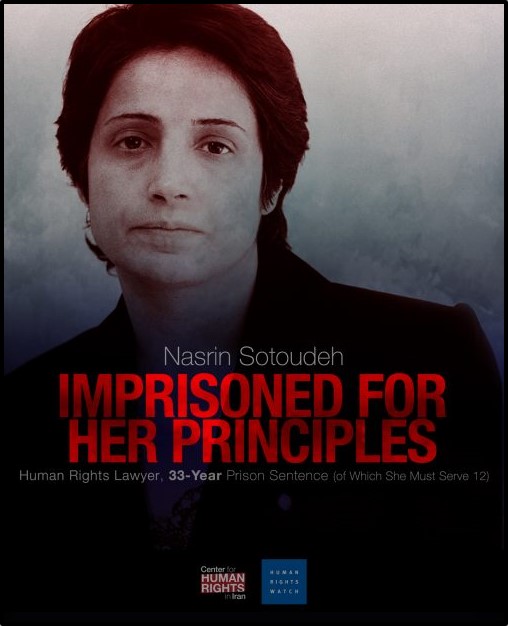 Nasrin Sotoudeh is a human rights lawyer who has defended women’s rights activists, victims of domestic abuse, journalists and government critics. Sotoudeh had represented Nobel Prize winner Shirin Ebadi in court and worked with the Iranian Women’s Coalition to promote women’s rights. She served three years in prison from 2011 to 2013 for allegedly encouraging “propaganda against the system” and “acting against national security.” In 2018, authorities arrested her for representing a woman protesting the compulsory hijab covering. She was sentenced to 38 years at Evin Prison on multiple charges, including espionage and collusion against national security. Sotoudeh will be eligible for parole after 12 years in 2030.
Nasrin Sotoudeh is a human rights lawyer who has defended women’s rights activists, victims of domestic abuse, journalists and government critics. Sotoudeh had represented Nobel Prize winner Shirin Ebadi in court and worked with the Iranian Women’s Coalition to promote women’s rights. She served three years in prison from 2011 to 2013 for allegedly encouraging “propaganda against the system” and “acting against national security.” In 2018, authorities arrested her for representing a woman protesting the compulsory hijab covering. She was sentenced to 38 years at Evin Prison on multiple charges, including espionage and collusion against national security. Sotoudeh will be eligible for parole after 12 years in 2030.
Related Material: “Nasrin Sotoudeh’s Health Deteriorates”
Sussan Tahmasebi is a human rights activist who founded the One Million Signatures petition, a campaign to end legalized gender discrimination in Iran. The petition, launched in 2006, called for equal rights in marriage, divorce, custody and inheritance law. In March 2007, Tahmasebi was sentenced to two years in prison for “spreading propaganda against the state.” She continued protesting discriminatory laws after her release. Human Rights Watch honored Tahmasebi for “extraordinary activism.” But in 2010, Tahmasebi went into exile in the United States. In 2015, she called on President Rouhani to improve the human rights situation in addition to his economic reforms. “Solving Iran's human rights situation should be seen by Rouhani as a critical strategy for ensuring national and human security in Iran,” she wrote for Middle East Eye.
